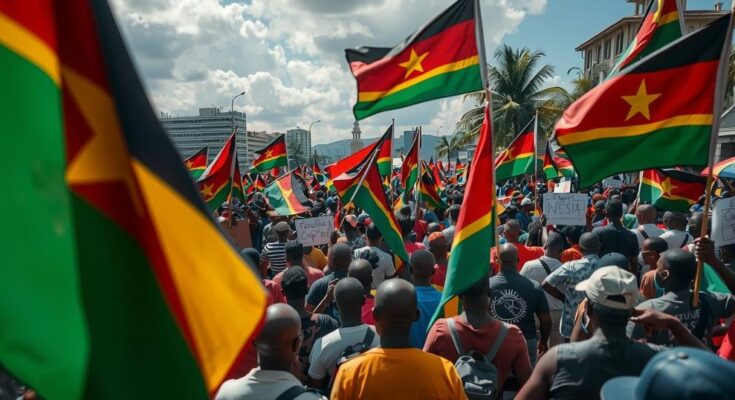In Mozambique, protests against the ruling Frelimo party’s electoral win escalated into violent clashes, with police reportedly killing at least 18 individuals. Opponent Venancio Mondlane decried the election as fraudulent and called for protests. The unrest highlights widespread public discontent and potential for significant political change in the nation.
Recent unrest in Mozambique has erupted as opposition protests challenge the election results following the declaration of the ruling Frelimo party as the victor in the October 9 poll. Protests intensified after the election authorities announced that Frelimo, which has governed for 49 years, retained power amidst allegations of electoral fraud. The situation escalated in the capital, Maputo, where police deployed tear gas to disperse thousands of demonstrators and reports indicated a significant loss of life during the police crackdown. Opposition leader and independent presidential candidate Venancio Mondlane has condemned the electoral process as unfair and called for ongoing protests. He expressed belief in a transformative moment for Mozambique, highlighting the political tensions the country faces.
Mozambique has a long history of political tension, particularly surrounding electoral processes, as seen during the recent general election which was marked by accusations of fraud and unfair practices. The Frelimo party, in power since the country’s independence in 1975, faced criticism from civil society and the international community regarding the integrity of the electoral results. This context is crucial to understanding the current socio-political climate, as a significant segment of the population, particularly the youth, rallies for change against a backdrop of increasing police violence and repression.
The situation in Mozambique reflects deep-seated political divisions and growing public dissatisfaction with the ruling party’s authority. The violent responses to protests and the clampdown on civil liberties pose significant challenges to human rights, necessitating attention from both domestic and international observers. As protests continue, the call for political change remains strong among opposition groups, underscoring a pivotal moment in the nation’s history.
Original Source: www.aljazeera.com




